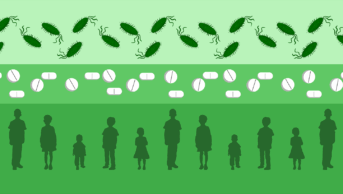
Shutterstock.com
More than 5 million people in England were prescribed a National Institute for Health and Care Excellence (NICE)-recommended statin or ezetimibe in 2023/2024, data have shown.
In a press release published on 31 October 2024, NICE said that the figure of 5.3 million people represents the highest ever number of GP prescriptions on record for these medications.
NICE said this figure has nearly tripled since 2015/2016.
The press release said that atorvastatin prescribing at NICE-recommended doses had increased from 4.2 million people in 2022/2023 to 5.0 million people in 2023/2024.
The figures show that ezetimibe — which NICE recommends as an alternative treatment when statins are not suitable and as an option for people who may need additional help in managing their cholesterol levels — was prescribed to 400,000 people at the 10mg dose in 2023/2024.
NICE said this was a 50% increase from the previous year and a 128% increase since 2015/2016.
The data also show that 85% of adults with known cardiovascular disease (CVD) were on cholesterol-lowering treatment as of June 2024.
“More people on medication does mean higher treatment costs, but this is offset by savings from fewer heart attacks and strokes, and lower healthcare costs associated with these life-threatening events”, NICE said.
Helen Williams, national clinical director for cardiovascular disease prevention at NHS England, said: “CVD is the biggest area where we can save lives over the next ten years.
“The wider use of these tablets to lower cholesterol is a key part of our plans to help prevent thousands of heart attacks and strokes, reduce health inequalities, and make best use of NHS resources.”
Janice Craig, medicines optimisation lead pharmacist for the Buckinghamshire, Oxfordshire and Berkshire West Integrated Care Board, commented: “We have worked with primary care healthcare professionals to highlight the range of cholesterol treatments available and how they can help their patients better understand their risk factors and manage their cholesterol levels through treatment plans more effectively.”
Sara Hafidh, advanced clinical practitioner and lead pharmacist in Wakefield and Pontefract, and Knottingley Primary Care Networks, said: “The approach is patient-centred, patient-specific, based on their risk factors.
“Everything is a negotiation, getting the patient involved and giving them options. The more you involve them in their care, the more uptake you will have.”
Results from a study published in Heart on 10 September 2024 suggest that statin therapies were cost effective in people aged over 70 years in the UK.
The study used modelling to simulate the risk of future heart disease in 20,122 patients with and without prior CVD.
2 comments
You must be logged in to post a comment.



There is still a lot of scepticism about statins. I have conversations with well educated me friends who don’t want to become medicalised. They believe they can control their cholesterol with diet and excessive. They are suspicious of pharmaceuticals regarding them as rather like poisons! My wife and I did a three month trial on statins and reduced our cholesterol from 6+ to 4+. Impressive but even my GP said - so what?! Not sure he is that convinced either.
Apologies for spellcheck errors!